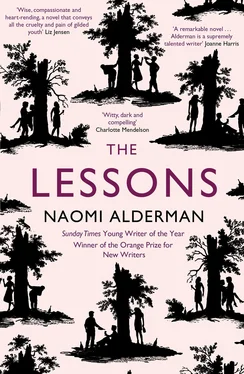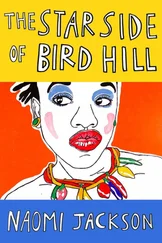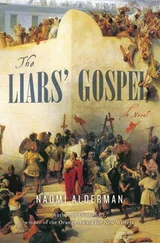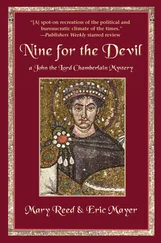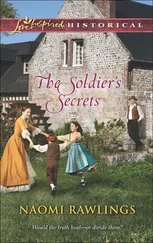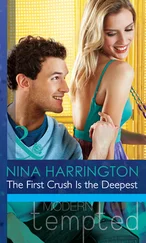Emmanuella noticed me then. I was bending over, stretching my hamstrings, a deeply undignified position. Her face was still pillow-creased, her hair dishevelled. I caught her eye and she smiled.
‘You are in Ivar’s tutor group, yes? James?’
‘Yes.’
‘He says you are quite good.’
It was the ‘quite’ that destroyed me.
‘Aha?’
‘Oh,’ she laughed softly, reached out and touched my arm. Her fingertips were warm and brown against my goose-prickled white. ‘That means he thinks you’re very clever. Don’t be offended. He’s not …’ She broke off and looked at me. ‘You run?’
‘Only for … yes. Yes, I run.’
‘Of course. Don’t race Ivar. He likes to win.’
I smiled.
‘Perhaps if we raced, I would win.’
She smiled back.
‘Perhaps.’
And she turned and walked towards Broad Street.
When I ran I thought of her, and of him. I thought of them entwined together, pressed up against the iron curls of the library gate. I thought of them, and of Guntersen’s hard work and Kendall’s tea-breath and of the work that still awaited me in my room. I thought of the Oxford life that, it seemed to me, was always happening somewhere else.
I rounded another bend, a sharp one, and began the downhill part of the run. My breath was coming in quick clear gasps, I was not yet tired. I ran along the edge of a water meadow. I thought of the work I had left to do that day. I had reached number five out of twelve on the question sheet. Tomorrow was tutorial day. I could perhaps finish another question today. I let the thought go. The birdsong was louder here. I wondered if Guntersen ever came this way, if he ever heard these birds sing. My feet hit the hard dry earth, one-two, one-two, and I thought of Guntersen and Emmanuella and wondered if they ever came here together, in the early morning, she putting her arms around his neck and he leaning her against a rough-barked tree. I closed my eyes for a moment, imagining it and, and. And this was enough.
My right foot came down not on hard earth but slid across ice. It turned right, and then round, and, with a wrenching tearing twist, further round and away. I tumbled and, as I fell, the leg twisted further, buckling under my weight, and there was a sick sensation in the joint and in my stomach and I found I was thinking of my sister Anne, again, and of her twisting the drumstick off the chicken, revealing the inner white of bone and string-like sinews and the gristle of the joint. And then there was violent, loud, aggressive pain, drowning out everything else, and then there was nothing at all.
2 First year, November, fifth week of term
When I woke, it was to pain again. And to a confusion so intense and overpowering that my senses became muddled and mingled. A dizzying panoply of vomit and earth, of the sound of jagged sinews and the taste of cold, and a sound like the iron tongue of pain on my leg. Confusion and then silence. Another burst of noise and light and stench and pain and metal. And then silence.
There was a dream, or perhaps a vision, in which a girl with long dark curly hair came to sit at my bedside. She pressed against my knee and the pain was holy and progressive. Later, there was a doctor, who grasped my heel and the back of my calf and said, ‘This may hurt a little,’ and the pain was not sacred but frantic bubbling agony.
I still dream of this, and sometimes in my dreams I imagine that I already knew Mark at this moment. He is there by my bed, his head tilted to one side, saying, ‘Pain, James, is the answer not the question.’ It’s because of his Catholicism, which I took so long to understand, and his insistence that a life without pain has no meaning. I suppose in a way I wish I had known him then, and this is why he appears in my dreams. Perhaps his respect for suffering might have kept me from such self-pity.
But I had yet to meet Mark. There was no one to rescue me but my parents and they had little to say. The hospital gave me medication for the pain, a fibreglass brace for my leg, and a pair of crutches. The college moved me to a ground-floor room.
My mother said, ‘Are you sure, darling? You don’t want to come home?’
My father stared out of the window, on to Turl Street, where girls in long woollen scarves were loitering by lamp posts.
‘Yes,’ I said. ‘Yes, quite sure.’
My father said, at last, ‘No sense in missing more work.’
Pain was the repeated refrain of my days, punctuating them with clear and resonant chimes. I began to learn how to make it sound and how to silence it. Pain when I twist suddenly to the left, but not the right. When I descend a staircase but not when I ascend. When I roll to the right in my sleep. The doctors had given me exercises, had told me that my injury was serious but that it would improve. They had said the discomfort would decrease. But would it disappear entirely? On that, they frowned and sighed and said, ‘Perhaps.’ Perhaps it would always hurt? They wrung their hands before they muttered, ‘Yes.’
I had missed a week by the time I was well enough to return to physics. I composed a note to Dr Boycott and, by return of pigeon post, he asked me to come to his rooms. At 4.30 he opened the door in response to my knock with every appearance of astonishment.
‘Ah, Mr, er …?’
He looked at me hopefully, waiting for assistance.
‘Stieff. James Stieff. I’m a first year.’
A pause.
‘I sent you a note, Dr Boycott. You replied.’
He blinked. ‘Ah, you are the student who has hurt your … hurt your …’ He stared at the thick case around my knee. ‘Your leg?’
He showed me into his office. It was large with a deep-piled leaf-green carpet and mahogany bookcases. He motioned me to sit in an armchair next to the fireplace. I lowered myself into it with difficulty, keeping my leg as straight as possible. I could not prevent a moment of ice-sharp pain, the separation of flesh. I gasped. Dr Boycott looked at me.
‘Yes, the problem is, Dr Boycott, that I missed last week’s work. And now I can’t seem to —’ I laughed, trying to indicate that this was a minor problem, one which must be easily rectified. ‘Well, this week’s work seems pretty much impossible to me.’
Dr Boycott observed me through his half-moon glasses.
‘I see. It is unfortunate. Last week’s work was crucial. Yes, I can’t see how you can carry on without having understood that.’
He chuckled, amused by the idea of such a hare-brained plan.
‘Well then,’ I said with relief, ‘obviously I’ll be a week behind for the rest of term. You won’t mind my taking my tutorials a week later?’
‘Oh,’ he said. ‘Oh no, I’m afraid not. I work to a strict schedule. All work must be marked together. I can hardly —’ he laughed again, hands clasped over his stomach, amused beyond measure — ‘hardly arrange special tutorials just for you.’
‘But,’ I said, ‘Dr Boycott, you just said yourself that I couldn’t hope to understand the next worksheet without —’
There was a knock at the door.
‘Come in!’ called Dr Boycott.
A man entered, one of Dr Boycott’s graduate students.
‘Ah, Trevor, just in time. I’ll make tea. Mr Stieff was just leaving, weren’t you, Mr Stieff?’
‘But I —’
‘Very good. I’m sure you’ll work it out. Yes, yes.’
And I found that I was standing at the top of the winding stair outside Dr Boycott’s office, the white-panelled door with its battered brass doorknob closed firmly behind me. Gingerly, step by awkward step, I made my way down the stairs.
In the group tutorial the following morning Dr Boycott called on me again and again for answers that he must have known I could not possess.
Читать дальше
